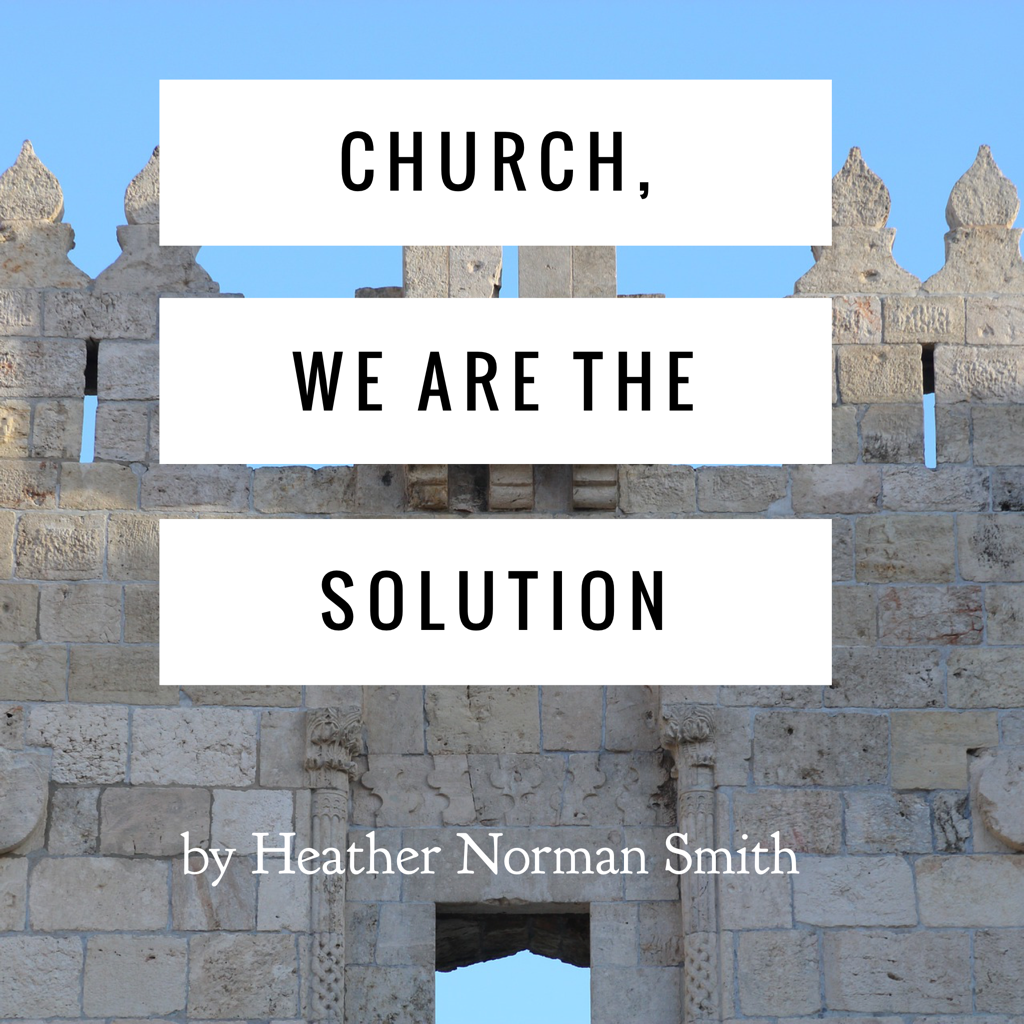|
After three weeks of stomach pain and nausea for my nine-year-old son, and a previous doctor visit that didn’t provide answers, I took him back to the pediatrician on a Saturday morning. The outcome of the visit was an immediate trip to a hospital’s emergency department to rule out appendicitis.
There were incredibly tense moments throughout the day as my son’s symptoms worsened. But after nine tiring hours of lab work and three different kinds of imaging, everything “scary” had been ruled out and a probable cause identified. It wasn’t until we left, overwhelmed with equal parts exhaustion and relief, that it hit me: I’d forgotten to worry about everything else that day except my son. All the things I normally spent energy on took a backseat. There had been no room in my thoughts for less urgent things. That experience was more shocking than one might expect—a Twilight Zone moment where the world had gone on around me while time stood still inside the hospital. My husband had taken our youngest child to a birthday party. Did I care that I hadn’t picked out his clothes before I left that morning and that they might be mismatched? No, though normally, this would have seemed important. My fifteen-year-old worked a shift at a local restaurant that afternoon, and it was her sixth day on the job. During her first five days, I’d spent the entire time wondering how she was adjusting and if everyone was being nice to her. I still cared about those things while at the hospital, but I didn’t let myself worry about them. She was fine, and my other daughter at home was fine, too. There were so many things I’d wanted to accomplish that day, but nothing on my “to do” list mattered in comparison to my son’s needs. When I realized all the things I neglected to worry about, it was proof that letting go of worry is possible, though it had come at a price. And that got me thinking. What if, instead of letting worries be pushed aside only by bigger, more pressing worries, I let the Word of God take their place? Our Lord taught that worrying about day-to-day things is unnecessary. In the familiar passages of Matthew 6:25-34 and Luke 12:22-31, Jesus speaks of how the Father feeds the birds, and how He clothes the grass of the field. God knows what we need, and since we’re more valuable to Him than birds and grass, we can trust Him to take care of us, too. Jesus also said, “Which of you by worrying can add one cubit to his stature?” (Matthew 6:27 NKJV). This rhetorical question begs us to stop and ponder the futility of worry. We can worry all we want, but it won’t change anything. Obviously, there’s a difference between necessary concern and worry, between reasonable diligence and panic. I care about all the things related to my family’s well-being, but I don’t have to worry about any of them. In my flesh, that’s extremely difficult for me, especially as we face continued illness in my family. May the Holy Spirit help us all to give our cares to Him daily. Cast all your anxiety on Him, because he cares about you. 1 Peter 5:7 NASB Originally published on AriseDaily.com.
2 Comments
For weeks, the theme of working for the Lord has been rolling around in my mind. Everywhere I turn, Scripture pops up about putting our faith into action. Combine that with a desire that my kids not sit around in front of a screen all summer and the idea of a goal-setting journal for kids and teens was born. I created the journal for my kids to use, but when the proof arrived, my husband said, "I want one of these." So, I designed a version geared more toward adults. The concept of both is the same. Every day, set a goal to do something: to help someone, to honor God, to grow your mind, to take care of your body, and to use your talents. Then track the results. The goals can be big or small, but over time, even "little" accomplishments add up to big results. Why should we set goals? Of course, we're not saved by works, but Titus 2:14 says that Jesus gave himself for us "that he might redeem us from all iniquity, and purify unto himself a peculiar people, zealous of good works." We should be zealous about doing good things. And when we pray and ask God what goals to set, He will guide us. I hope these books help kids and adults to be purposeful in accomplishing great things. The journals measure 8.5" x 11" and contain pages for three months-worth of pages to set and track goals. To purchase My Big Goals: A Journal for Kids and Teens click here. To purchase Good Works: A Goal-Setting Journal click here. See videos below for an inside look.
Please help me, Lord, I prayed. Please make this easy.
My dentist visits are times of fervent prayer. During even the simplest of procedures, I almost always end up crying from anxiety, at least a little, and it seemed the recent visit to fill two cavities would be no different. As the dentist came at me with the needle, I prayed harder in my mind. Please help me get through this. My prayer was desperate, pleading. Then something life-changing happened. The dentist poked the needle into my gum, and I stopped praying. I quit begging God to help me. Instead, I began to thank God for being so good. I changed my prayers into praises, and the panic lifted--it dissolved and floated toward the heavens with my words of adoration. It was the most painless injection of Novocain ever. So, I kept praising, right through the drilling, and the result was nothing short of miraculous. You are Magnificent, Marvelous, Wonderful, Worthy. Magnificent, Marvelous, Wonderful, Worthy. Over and over, I offered those words silently. At some point, I remember thanking God for a good dentist who can fix my teeth. In a gentle voice, the dentist said, "You're doing good," as he worked. He always says that, because he's kind and genuinely empathetic about my anxiety. But for the first time, I actually felt like I was doing okay. Not just getting by. Not just managing. I was good. Psalm 34:1 rang in my mind. I will bless the LORD at all times: his praise shall continually be in my mouth. And though the praises weren't actually coming from my mouth--a little hard to do when your teeth are being drilled--they were there in my heart, thanks to the prompting of the Holy Spirit, Who knew what I needed to do. God heard my original request to make the visit easy, and He used my praises to accomplish it. I've visited the dentist a lot over the past year, since I finally decided to prioritize oral health over my fear, and I've still got a few more visits left to get all the problems corrected. But if I can just remember my "secret weapon," I don't think I'll dread the next visit so much. Now to try praising the Lord on an elevator... What makes you panic? Maybe praise is your answer, too. Maybe a better question is, "Why not memorize them?" In an age where we can look up most anything in seconds, memorization of lists and facts has become a lost skill. But scholars suggest that memorizing information increases the brain's capacity to learn*, and when we memorize something, it becomes part of us. Memorizing the Books isn't as important as actually reading and studying the Bible, but it is a way to affirm our commitment to making the Bible an important part of our lives. Knowing the names of the Books in order is useful for locating Scriptures easily. Many people are able to recite song lyrics, sporting event schedules, and network television lineups with little effort. What if we invested some of that same brain power in the list of sixty-six Books that make up the Holy Bible? My nine-year-old son recently recited the thirty-nine Books of the Old Testament in front of our congregation (full disclosure: there was a monetary reward involved,) and he's working on learning the twenty-seven books of the New Testament. I learned them all when I was a child, too, but I'm having to re-learn part of the list now, and the refresher course is fun. Especially since he and I are working on memorizing them together. What about you? Does this sound like a challenge you'd like to try? A quick internet search for "how to memorize the Books of the Bible" provides an enormous list of articles, blogs, and videos that could be helpful. If you're a visual person, a colorful poster is a great tool. (I love the one I bought for my Sunday School class, but it's no longer available.) Maybe try this free printable from www.1plus1plus1equals1.com. Or, if you memorize best through music, search the web for "Books of the Bible song." There are even videos that instruct how to pronounce the names of the Books. Memorizing the Books of the Bible doesn't have to be accomplished in one day. If you set a goal of learning eleven names per week, you'll be able to recite them all in six weeks! Just set a goal that's right for you and stick to it. Make it a family project or challenge a friend to learn them with you. I love having a worldwide web of data at my fingertips (and a Table of Contents in the front of my Bible,} but the internet can never replace the power of the human brain. If you haven't memorized the list of Books in order, give it a try. Why not? *Source: Psychology Today, William Klemm, Ph.D., senior professor of Neuroscience at Texas A&M University.
The woman’s pretentious words set my blood to boilin’, as the saying goes. In a closed Facebook group, related to Christian writing and publishing, this person’s responses on a particular thread were haughty and, by my interpretation, hateful. I stopped to examine my emotions. I’d been under a lot of stress. Maybe I was just overly sensitive. Everyone else dealt with her patiently, and with grace. They answered each arrogant retort with gentle, loving dialogue, while I wanted to (politely) call her out.
I stepped away from the thread and went on scrolling through Facebook, still fuming. Then I came across a meme posted by author Robin Lee Hatcher. It said, “Sometimes the best thing to say or do is nothing.” Well, there was my sign. I needed to stay quiet about the matter. Still, it ate away at me. I went back and read the thread again. It had only gotten worse. This person tried to shut people down like her opinion was the only one in the world that mattered, and I wanted so badly to jump in and (with love) tell her she was being a jerk. Sometimes, it’s okay to do that. But in this case, I just didn’t feel that liberty. So I continued to fight the urge, and I jumped over to Twitter instead. I scrolled through GIFs and quotes, still seeing red. Then I saw a post from my writer friend, Rachel Schmoyer. She’s studying and teaching the book of Proverbs and had shared this: “Whoever belittles his neighbor lacks sense, but a man of understanding remains silent.” (Proverbs 11:12, ESV) Remains silent. There it was again. I had no other choice but to let it go. I wouldn’t even revisit the thread, so I wouldn’t be tempted to speak out. The next day, I had another irritating encounter online. I had my feelings hurt through a message with a friend. I’m still not sure if it's because I’ve been overly sensitive lately. Proverbs 15:18 says, “A wrathful man stirreth up strife: but he that is slow to anger appeaseth strife.” I think I'm normally slow to anger, but in some seasons and situations, it’s harder to be that way. I managed to keep calm with my friend, but my first instinct was to call someone else to vent. Before I dialed, I thought of Philippians 4:8: “Finally, brethren, whatsoever things are true, whatsoever things are honest, whatsoever things are just, whatsoever things are pure, whatsoever things are lovely, whatsoever things are of good report; if there be any virtue, and if there be any praise, think on these things.” Even if what I was going to say was true and honest, it surely wasn’t of “good report” or “virtue”. It wasn’t praiseworthy. So, I knew I needed to be quiet. Still, I wanted someone to validate my feelings of anger. I needed to tell someone that I had been wronged. But back to Facebook I went for a mindless distraction, and as I scrolled, I came across a post that was simply one word and two numbers. It read, “Philippians 4:8.” Wow. Needless to say, I didn't make that phone call. Three times in two days, something on social media gave me pause. Three times, I received spiritual guidance from Facebook or Twitter. So does God really speak through social media? Does he really care that much for me, to guide me so lovingly in the right direction when I’m tempted? I believe so, but not just because I happened to find these posts. I spend way too much time on social media, so it’s probable, out of all the posts I read, that I’ll find ones that relate to my present situation. But I know God speaks to me on social media by the way those posts convicted me, the way they spoke to my spirit. John 10:27 says, “My sheep hear my voice, and I know them, and they follow me.” I'm thankful to be one of His. I'm thankful that I have friends who share the truth of Scripture online. And I'm thankful that God speaks in many ways. What unexpected way has God spoken to you lately? So many spiritual connections can be made while observing nature. This morning's thought came just from watching birds eat.
Over the past few years, I've developed a love and appreciation for birds. I think it's part of getting older- we start slowing down to really see things that have been right in front of us all along but were too busy to appreciate. I have a couple of feeders up, and I get a lot of joy just from watching the little birds come to eat. Today, I noticed how the different species feed differently from each other, and it made me think of the different ways believers consume spiritual food. The sparrow hung out there, taking its time. It pecked and ate leisurely, perched in the same spot for a long while. Some people spend time with God this way, setting aside time to soak up His presence and be fed in no hurry. The chickadees and nuthatches dart in and grab a bite, then quickly fly away. But they come back soon. Back and forth, they feed throughout the day. Spiritually, I find myself most like these birds. I spend time with God in short, frequent periods- a verse here and a prayer there, a song lifted up as I go about my day. Some of the birds seem to prefer to eat alone, while others come with a friend. The cardinals and the house finches usually come as a pair. And while Christians are instructed to assemble together regularly, some believers get the best spiritual food in their quiet time alone with God. Others thrive on corporate worship. No matter how you like to be fed, the most important thing is to eat. We may do it differently, but spending time with Jesus through worship, prayer, and reading the Bible is the spiritual food we all need. "For the bread of God is he which cometh down from heaven, and giveth life unto the world." John 6:33 There's a helpful book about writing novels that discusses widely-accepting industry rules, the author's opinions and experience with these rules, and how to get past the industry gatekeepers when it comes to deviating from them. The gatekeepers that Jeff Gerke describes in his book are the acquisition editors who have the power to decide if a writer will be represented by an agency or publisher. They keep unwanted things out.
The term "gatekeeper" resonated in my spirit. While there are plenty of things that should be kept out of the church, we need a different kind of gatekeeper. We need watchmen at the doors, not of the physical building, but of the body of Christ, for two specific reasons. 1.) To hold the door open to invite people in. I know some of these gatekeepers. They bring new people to church often. They say, "Hey! Come inside! Jesus is for you, too! He wants you here!" We need gatekeepers to make sure people feel welcomed within the church and to hold the doors open for all who would seek to enter with a desire to encounter God. I imagine this kind of gatekeeper swinging back and forth on the gates, calling to those in the street, "It's open! It's open! It's open!" 2. To make it harder for people to slip away. This is where the term really struck me. Too many people, especially young people, slip out of the church's gates unnoticed. We don't realize they're gone until it's too late. They have no desire to come back. And I worry it's simply because nobody tried to stop them from leaving. There was no one guarding the gate, saying, "We'll miss you if you're gone. There's nothing out there for you. You're safer in here. Please stay." Obviously, we have free will. If someone is determined to leave the safety of the church, they are ultimately accountable to God for their choice. But what if we had more gatekeepers to guard the doors of the fold? With kids, it should be the parents that guard the gate. But if that doesn't happen, who will be standing there to keep our young people from going astray? While a pastor guards the flock, laypeople can be gatekeepers, too. Reach out to your church's young people. Keep them involved so they understand they have a place. Don't let them slip out unnoticed. Oh, Lord, make us gatekeepers. Teach us how to swing the doors open to everyone that may pass by, and help us stand guard for the ones that need encouragement to stay within the gates. We are bombarded by information, all the time, from every direction. Much of it is useful and valuable, but much of it can be harmful to us mentally, emotionally, and spiritually. Let’s take some time to talk about how we can sort out all the information and guide our thoughts toward the positive.
Philippians 4:8 is a verse that I need constantly. If I were going to tattoo scripture on my arm, I think this would be a helpful one to have. (Since I’m not going to do that, I need to tattoo it on my heart, with the help of the Holy Spirit.) “Finally, brethren, whatsoever things are true, whatsoever things are honest, whatsoever things are just, whatsoever things are pure, whatsoever things are lovely, whatsoever things are of good report; if there be any virtue, and if there be any praise, think on these things.” I love that we have a checklist of sorts, for the kinds of things we should be thinking about! Here’s another way to break it down. We should spend our mental energy on things that are:
I have to admit, many things that I spend my focus on during the day don’t fit into one of these categories. So often, I find myself reading “news” stories that do nothing but leave me sad or angry. There are few things in the news that are “of good report”, and certainly not much on television or in movies is "virtuous". I'm guilty of spending half an hour reading arguments on Facebook, which are certainly not "praiseworthy", between people I don't even know. It's a disgusting waste of my time! And it's often difficult to discern if much of the information we are getting from all the various sources is even "true" and "honest". When we fill our brains with things that are the opposite of what this verse says we should think about (dishonest, sinful, condemnable things), it has an effect on the way we act and think. So, here’s what I want you (and me) to remember: It’s OKAY to just shut out the negative influences. Take a break from Facebook, turn off the news, and politely tell trash-talking people that you have other things to do. Then seek out something "pure", or "lovely", or "praiseworthy" to think on. GUARD YOUR MIND! Another takeaway from Philippians 4:8 is a lesson on how we should think about people. Instead of focusing on people's faults (and yes, I'm talking to myself as a spouse) let's practice "thinking on" the things that are lovely in people. We need to make a conscious effort to NOT think on the gossipy things we hear, and focus on all the good things that we know to be true about them. Use this verse as a checklist for what you should allow into your mind. Ask yourself, "Is it true?", "Is it pure?", "Is it praiseworthy?", etc.. It's not an easy thing, but I'm trying to put this into practice. And I hope you will, too. I'm tired of listening to people's problems. It may seem harsh, but I'm tired of just listening to the constant noise about the number of things wrong in our communities, and you should be tired of it, too. The time has come for the body of Christ to do more than listen. We need to stand up and actually be the solution for our broken world, by the power of the Holy Spirit. In the book of Nehemiah, one hundred and sixty years after the start of Israel's captivity by the Babylonians, God stoked the heart of Nehemiah to rebuild the walls of Jerusalem, the capital city of his ancestors. Nehemiah heard the news that "the wall of Jerusalem also is broken down, and the gates thereof are burned with fire (Nehemiah 1:3)", then he wept and mourned over the situation. He also prayed and sought direction from the Lord, and God paved the way for Nehemiah to carry out a plan of action to fix the problem. We've been weeping over the brokenness of society for a long time. Now it's time to get our hands dirty and rebuild. When Nehemiah organized the rebuilding of the wall and its gates, there were different groups that stepped up to take a section. Over forty individuals, families, and groups are specifically named in Nehemiah 3. The Word tells us in what order they worked along the wall, and in many cases, the specific job they had. Here's what stands out to me about the process: 1.) They worked alongside each other. The rebuilding didn't start in random sections all around the city. The groups came together and worked side-by-side. 2.) Everyone had a specific assignment. Each group was assigned a task to get the whole thing completed, so that the city could be fortified again as soon as possible. I see the different groups in Nehemiah 3, not as different members of a church, but as individual churches in a community. And I see each section of the wall as a ministry opportunity that can help rebuild those communities. One church, no matter how motivated the members are, or how many resources the church has, cannot be the answer to all the problems in a community. But with planning and communication, imagine what can be accomplished when churches in a community work together! I've never tried to organize a coalition of churches, and it sounds like a grandiose, and slightly crazy task. But it all starts with a vision! Here are some ideas a group of churches might consider to start being problem-solvers in their communities.
Now, I believe the most important mission within every church is to preach the "power of God unto salvation (Romans 1:16). The solution to all the problems isn't really "Christians", it's Christ. But we can show the love of Christ by meeting the lost where they are, and by encouraging other believers beyond the walls of the church. So, what are some ministry opportunities on which a church might focus? Here are a few:
Collectively, we need to be organized. If every church in a community visits the nursing home once a month, that's wonderful! But if no churches in a community are working to help the homeless, then there's a gap in the wall. If we coordinate our efforts, we can close the gap. At the same time, if a church has ten different outreaches, their resources may be stretched too thin to be effective. That's a gap that could be filled by another congregation. We can't fix it all. Until the return of Christ, there will be sin in the world, which leads to all the problems we see around us. But we've been acting defeated for too long. It's time to work hard and let the world know we have the answer- his name is Jesus. Have you ever been praying and realized your words were actually from His Word? We know God speaks to us through the scripture, but we can use the scripture in our communication to Him as well. We are given the model prayer by Our Lord in Matthew 6 and in Luke 11, and there is power in reciting this prayer (sincerely and not out of vain repetition) every day. Indeed, all our prayers should center around four words from the Lord's Prayer: "Thy will be done." But I'd like to present you with some other verses that can be used in prayer. From the Old Testament, I like to use the words from the heart of King David in the book of Psalms as my own plea to God. There are so many we can reference, but for today, these are the verses I've connected together as my personal prayer. This is what is on my heart: "Let the words of my mouth, and the meditation of my heart, be acceptable in thy sight, O LORD, my strength, and my redeemer. (Psalms 19:14) Create in me a clean heart, O God; and renew a right spirit within me. (Psalms 51:10) Teach me to do thy will; for thou art my God: thy spirit is good; lead me into the land of uprightness. (Psalms 143:10) From the end of the earth will I cry unto thee, when my heart is overwhelmed: lead me to the rock that is higher than I. (Psalms 61:2)" The words from Psalms need no editing, because they are already directed to God. From the New Testament, I've taken the prayer of the Apostle Paul for the church at Phillipi and personalized it. This prayer is based on Philippians 1:9-11: "May my love abound still more and more in knowledge and all discernment,that I may approve the things that are excellent, that I may be sincere and without offense till the day of Christ, being filled with the fruits of righteousness which are by Jesus Christ, to the glory and praise of God." What more can we ask for in life than to grow in love, for the glory of God? This is my sincere prayer. The Word is full of examples of righteous requests we can make. Thankfully, we also have the Holy Spirit to guide us in our communication with God, we have Jesus as our intercessor with the Father, and there is no required formula or specific liturgy needed. 1 John 5:14,15 says: And this is the confidence that we have in him, that, if we ask any thing according to his will, he heareth us: And if we know that he hear us, whatsoever we ask, we know that we have the petitions that we desired of him. Whatever format you use, take time to talk to God today. What scriptures do you pray? Do you have specific verses for praying for others, for our leaders, or for certain situations? Please share them with me in the Comments!
|
About the BlogThank you for visiting my blog. I share devotional articles and musings about life, parenting, and the writing journey, as well as important news about my books. I hope you find something of interest here! Click below to sign up for my email newsletter, which includes links to my latest blog posts. Thank you!
Categories
All
Archives
August 2023
|














 RSS Feed
RSS Feed